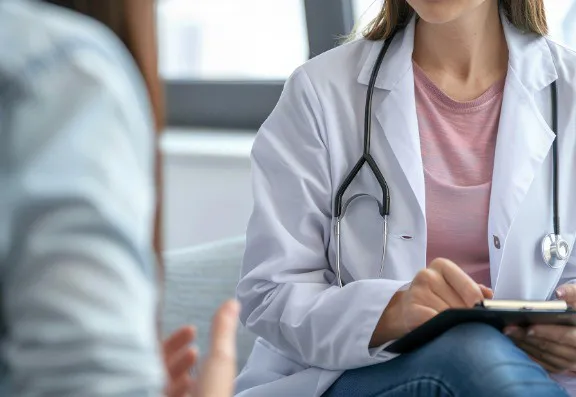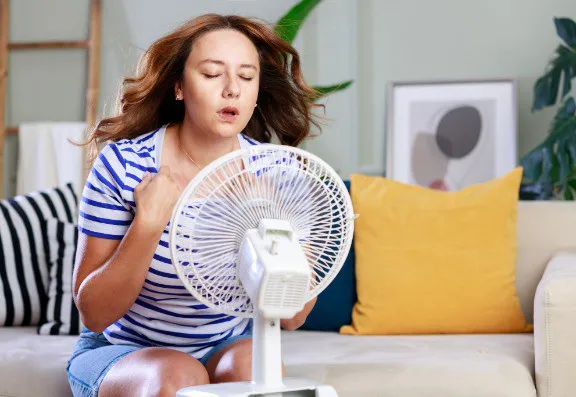When it comes to the menopause, all women experience symptoms differently. Some may sail through ‘the change’, while others can struggle with a myriad of side effects.
While Hormone Replacement Therapy (HRT) is the main clinical treatment available to help regulate your hormones and calm menopausal symptoms, there are alternative therapies you can try.
Natural menopause treatment methods can be appealing to some women who can’t or don’t want to take prescription HRT medication. According to the NHS, HRT may not be suitable for those with a history of breast, ovarian or womb cancer, blood clots, liver disease or untreated high blood pressure.
For others, they may simply not want to experience the side effects associated with HRT, which can include breast tenderness, headaches, feeling sick, indigestion, tummy pain and vaginal bleeding.
Alternative therapies therefore offer a different solution.

Regular exercise, eating a healthy diet full of nutritious food, cutting down on alcohol, smoking and spicy foods can all have a positive impact.
Recommended foods include those that are rich in:
This is a non-hormonal drug that may reduce hot flashes and night sweats, although there’s not a lot of evidence supporting its use. It’s taken as a tablet two or three times a day. Side effects include a dry mouth, drowsiness, depression and constipation.

Both exercises have clinical research supporting them as great relaxation tools for menopausal women. They help you to destress, focus on your breathing, and improve your health and fitness.
If vaginal dryness is bothering you, try a vaginal lubricant or moisturiser. These are available over-the-counter from most shops and pharmacies.
Taking antidepressants can be particularly helpful if you’re suffering from low mood, while some reports suggest they can help with hot flushes. It’s always advisable to try other ways to lift your mood before taking antidepressants but speak to your GP if you’re not having any luck and want to give them a go.
Side effects can include having a low sex drive, as well as feeling agitated, shaky, anxious, sick or dizzy.
Bioidentical Hormone Replacement Therapy (BHRT ) involves the use of duplicates of human hormones and products by specialist pharmacies. They will test hormone levels in advance and create personalised prescriptions for patients.
Many women report the benefits of BHRT, but it’s important to note that it is not endorsed by the NHS or the British Menopause Society for various reasons. It’s important to do your research and only see medically-qualified professionals for advice before embarking on treatment.
If you’re not keen on taking medication, then there are a number of natural remedies and supplements that you can try, which have some clinical research supporting their use:
The NHS advises that while these products are marketed as natural, it does not mean they’re necessarily safe. The quality and purity of ingredients cannot always be guaranteed, and you may experience unwanted side effects. It’s worth chatting to a healthcare professional before you try a complementary therapy.
As always, if you have any questions you can use our Menopause Q&A where you can ask for more advice.
We have lots of Menopause FAQs, Menopause videos, Menopause reviews, and Menopause before and after images for you to do more research.
If you want to look for your nearest verified Menopause clinic, your local menopause clinics are listed below.